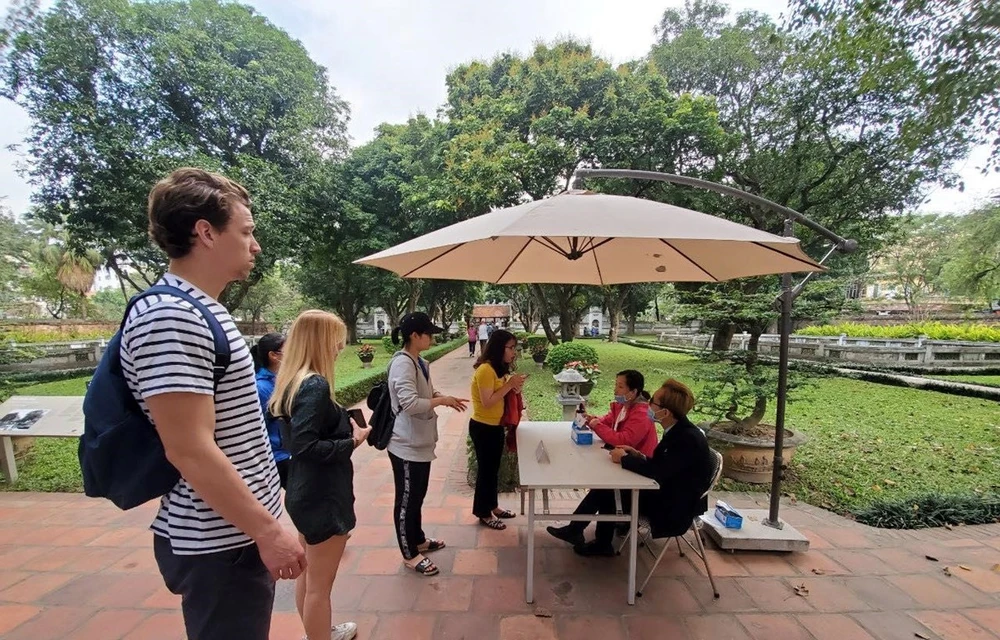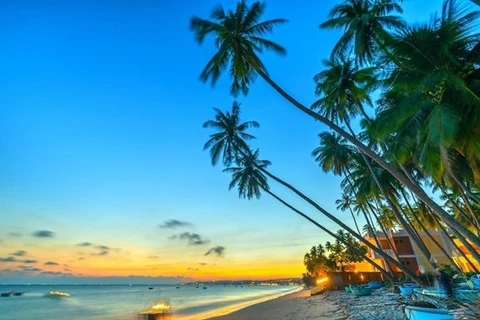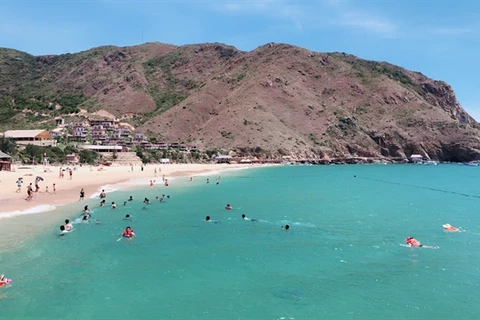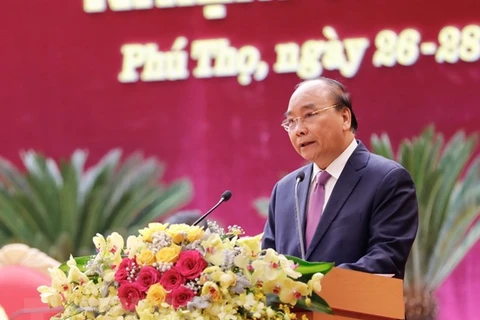
Hanoi (VNA) – As the COVID-19 pandemic is controlled, travel limitations have been loosened in Asia-Pacific region, resulting in positive signs for the tourism sector.
As international flights were cancelled due to the COVID-19 pandemic, the tourism sector had no choice but to step back and wait for the crisis to go away. The closure of border of the majority of countries forced airlines and businesses providing travel services to stay still and watch the situation develop as well as updating changes in priorities, thus prioritising the safety and health of customers.
As travel restriction policies in Asia-Pacific countries loosen, independent surveys show that the tourism sector has seen positive signs.
Demands rise
According to a recent survey by Google, one out of two people in the Asia-Pacific region said that they wanted to “take a tour”. The results matched statistics on searches for tours in the region. In only three months, the search for “tours” recovered by 50 percent compared to the time before the COVID-19 outbreak.
Searches indicated that people are interested in future vacation and are trying to find information on taking tours while keeping a close eye on the development of the pandemic. This suggests that firms must be ready to meet the demand of their potential customers when countries eventually open back up.
According to Google, beach destinations of Vietnamese tourists in July were five times higher than in March this year. Besides the demand to travel to major cities as normal, Google statistics showed that Vietnamese travelers tend to choose natural destinations such as Phu Quoc island and Da Lat city for their year-end vacation.
The survey’s outcomes are similar to those by Booking.com and the Vietnam Tourism Advisory Board (TAB).
The demand for self-arranged tours is recovering faster than the package ones, doubling that before the pandemic broke out. Mountainous destinations such as Fansipan has been on top search besides Ba Na Hills, Cu Chi Tunnels and Ha Long Bay.
Head of the TAB Hoang Nhan Chinh said that the travel demand of people has increased with 71 percent of tourists choosing to travel by air, and 29 percent by private vehicles.
Notably, along with priority in health and safety (31 percent) and security (26 percent), the financial capacity (33 percent) was among major factors greatly affecting people’s travel plans this year. The COVID-19 pandemic has made many families more difficult in their financial capacity.
Strategy for a “new normal”
No single approach is suitable for all travel service suppliers. Each market has a different recovery roadmap that is suitable for the changes in tourists’ habits.
A representative from Google said that the top priority now is meeting the interest of the digital era, as all customers need online information.
The representative noted that six out of 10 customers in China said that they planned to make bookings with online travel agents more often than in the period before the pandemic.
Another strategy is to adapt to COVID-19, as ensuring safety will be the new brand. But the concept of safety in each country is different.
Another survey revealed that tourists place sanitation and hygiene as one of their three top concerns, along with the tourism reputation and promotion programmes.
It underlined that the “safety” definition varies in different countries, leading to the difference in tourists’ choice in each market.
The third strategy is to apply a new business method and the re-boosting of "MICE" (meetings, incentives, conferences, and exhibitions) tourism.
Although people are excited about travelling again, Google surveys showed the instability in demand for business trips, especially in MICE – one of the important sections for travel firms. This is a chance for tourism enterprises to work together and show their key role in changing the mindset of customers towards positive orientations.
Building confidence for customers is key to arousing their demand for MICE tourism. Governments have played a central role in efforts to encourage consumption. The Singaporean Government is piloting a policy that would allow events gathering a maximum of 250 people from early October.
Experts advised that travel firms should win trust from customers by highlighting their effective safety measures such as strictly abiding by social distancing policy in MICE events.
Amidst the unpredictable developments of the pandemic, travel firms, if able to manage to survive, are updating and changing themselves to adapt to the new trends in a hope of overcoming a hard time.
Particularly, outcomes of market surveys from independent organisations will serve as the foundation for Vietnamese firms to understand the demands and thoughts of customers in the new situation, thus providing suitable services./.

























